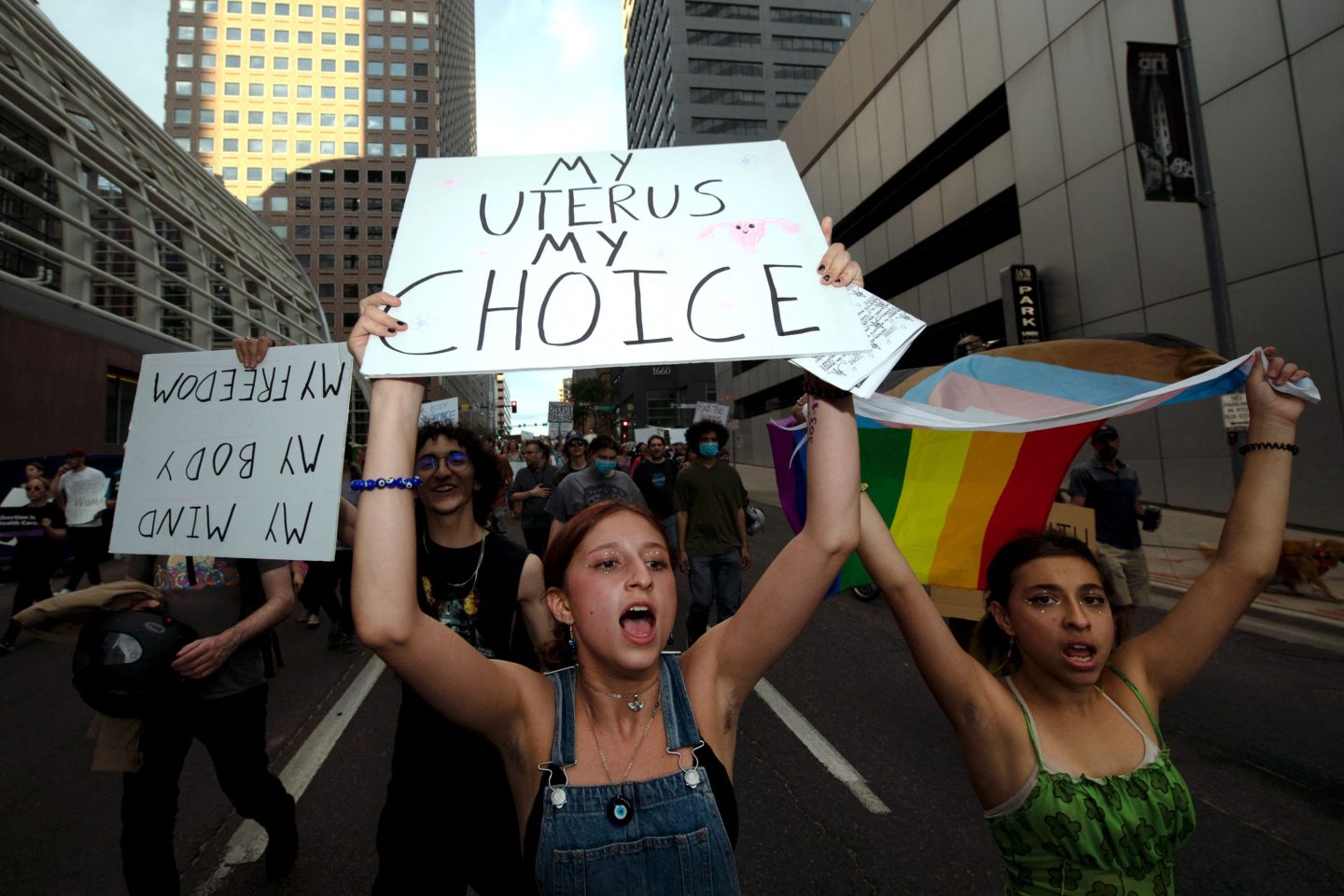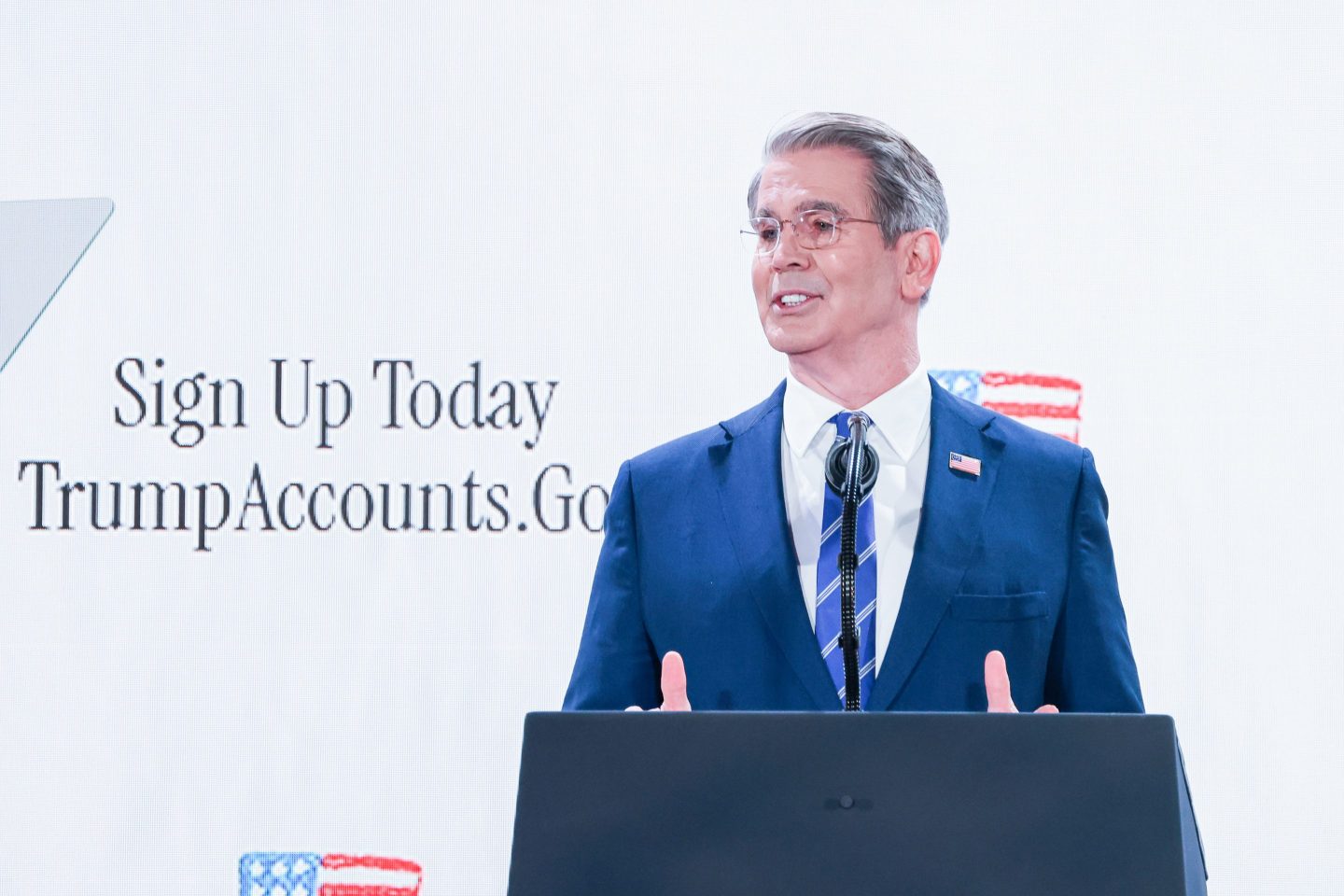Facing unequal pay, antiabortion legislation, and workplace bias, women are making tough decisions when deciding where to plant their roots. And now, with state-level barriers to conceiving and carrying a pregnancy to term, the pressure is heating up.
Alabama’s Supreme Court held this month that frozen embryos created through IVF will be considered children under state law, setting off a flurry of panic over the fate of stored embryos and the future of fertility services and family planning in the state. The court’s decision proves that reproductive legislation is constantly changing—and women will bear the burden of keeping up with the changes.
Currently, 10 states are the worst for women based on health care legislation, wage growth, childcare costs, unemployment figures, business ownership, job security, and the potential to become a victim of assault, according to a new WalletHub report and ranking. In addition to Alabama, they include Missouri, Georgia, Wyoming, West Virginia, Arkansas, Texas, Mississippi, Louisiana, and the caboose of the worst states on the list, Oklahoma.
Here’s what they offer women the least in.
Equal pay laws
In 2022, women earned an average of 82% of what men earned, per a Pew Research Center analysis—and the pay gap has barely closed in the past two decades.
According to a 2019 U.S Census Bureau survey, Wyoming, Oklahoma, Louisiana, and Alabama were among the worst states for pay equity. Men earned an average of $20,000 more per year than women in Wyoming, for instance.
Part of the gap can be chalked up to behaviors. Women often take on more domestic chores (like cooking, cleaning, laundry, and childcare) than men. The Pew analysis found that nearly 70% of working moms with children under age 18 felt great pressure to focus on household responsibilities, as opposed to 45% of working dads. The burden can lead to burnout, and incentivizes women to clock fewer company hours, leading to lower earnings and fewer promotions. Nearly 50% of employed women felt this pressure as opposed to 35% of employed men.
Another part of the gap is due to states lacking legislation in areas like equal pay, state-sponsored childcare, and early education programs. Under Wyoming’s Equal Pay Act, which was signed into law in 1963, employers must pay the same, regardless of gender, unless their business model follows systems of seniority; is based on merit, or quantity or quality of production; or uses a differential based on any factor other than gender.
Women, who tend to leave the workforce sooner and clock out earlier to raise kids and take care of the house, are left on the short side of the stick under such rules.
Reproductive rights
More than 34 states have passed restrictions on reproductive rights since the Supreme Court overturned Roe v. Wade in June 2022, according to the Guttmacher Institute, a research and policy organization that advances sexual and reproductive rights. Other states could follow Alabama’s lead. Of those, 21 states have passed legislation that the organization describes as “most restrictive” or “very restrictive,” which includes complete abortion bans with few or no exceptions, forced counseling appointments or ultrasounds, no Medicaid coverage for abortions, and a state’s ability to shutter abortion clinics.
The report’s 10 worst states for women, with the exception of Wyoming, all have very restrictive reproductive restrictions, which means women often need to travel out of state to get medical attention, procedures, or medication.
“Women should assess broader state policies and evaluate how women are valued as a collective,” said Jo Reger, a professor of sociology at Oakland University. They should also “consider the specific challenges faced by their particular group,” she added, noting that biases that could harm immigrants, undocumented people, refugees, or sexual minorities are stronger in certain states.
Reger recommends that women research pending legislation in the states they consider moving to. ACLU maintains an up-to-date map of legislation.
How a state values women “impacts where people decide to live,” Cassandra Happe, an analyst at WalletHub, told Coins2Day, adding that “states with the most restrictive policies pose challenges for women, who need to decide to stay where they’re at with the current policies or relocate for different opportunities.”
While some states are scaring women away, others are hoping to draw them in. Last summer, Michigan governor Gretchen Whitmer launched an ad campaign targeting populations who may be put off by limitations on abortion access, queer rights, and other diversity issues in six red states with a simple message: “In Michigan, all are welcome.” The ad is in its initial run in Georgia, Indiana, Florida, Texas, Tennessee, and South Carolina, according to Sinclair Broadcast Group.
Women should consider how issues related to pregnancy and complications are addressed, along with other important factors like “the tax structure concerning dependent care,” and “the laws regarding job discrimination and who they protect,” Reger wrote in a statement. The National Women’s Law Center offers a state-by-state guide on these concerns.
State-funded childcare and early education programs
Half the states in the report—Missouri, Texas, Idaho, Mississippi, and Wyoming—are also states that least efficiently use federal childcare dollars. Missouri and Wyoming, among other states, consolidated their early childhood program agencies last year with hopes that families would find it easier to apply for care—but the effects of inadequate childcare persist.
According to Better Wyoming, a grassroots institution that focuses on statewide change, childcare costs increased by 47% between 2019 and 2021, and more than a third of Wyoming families live in childcare deserts: areas with either no licensed childcare providers or more than three times as many kids as slots at daycares.
The lack of childcare options means costs are soaring. The state’s daycare costs for one infant and one preschooler average about $1,400 per month—an alarming price considering that 75% of the state’s minimum-wage workers are women.
Nationally, women make up over two-thirds of all minimum-wage workers. For single mothers earning minimum wage, the costs can be a huge challenge, said Happe. Childcare costs are up 32% since 2019, which is difficult for even a two-income household to meet, she said.
“But for a single mother, that imbalance between minimum wage and the cost of childcare is the difference between being able to work full-time or part-time, and might mean relying more on family and friends to pick up the slack.”
Companies that offer remote or hybrid work are an alternative that “more young mothers are looking at so they don’t have to invest,” thousands of dollars in childcare “while still balancing their careers,” Happe said.
Other benefits companies can keep in mind, according to Reger, is to create “family-friendly environments” that support women and parents, like onsite daycare facilities, and comprehensive health insurance and benefits packages.













